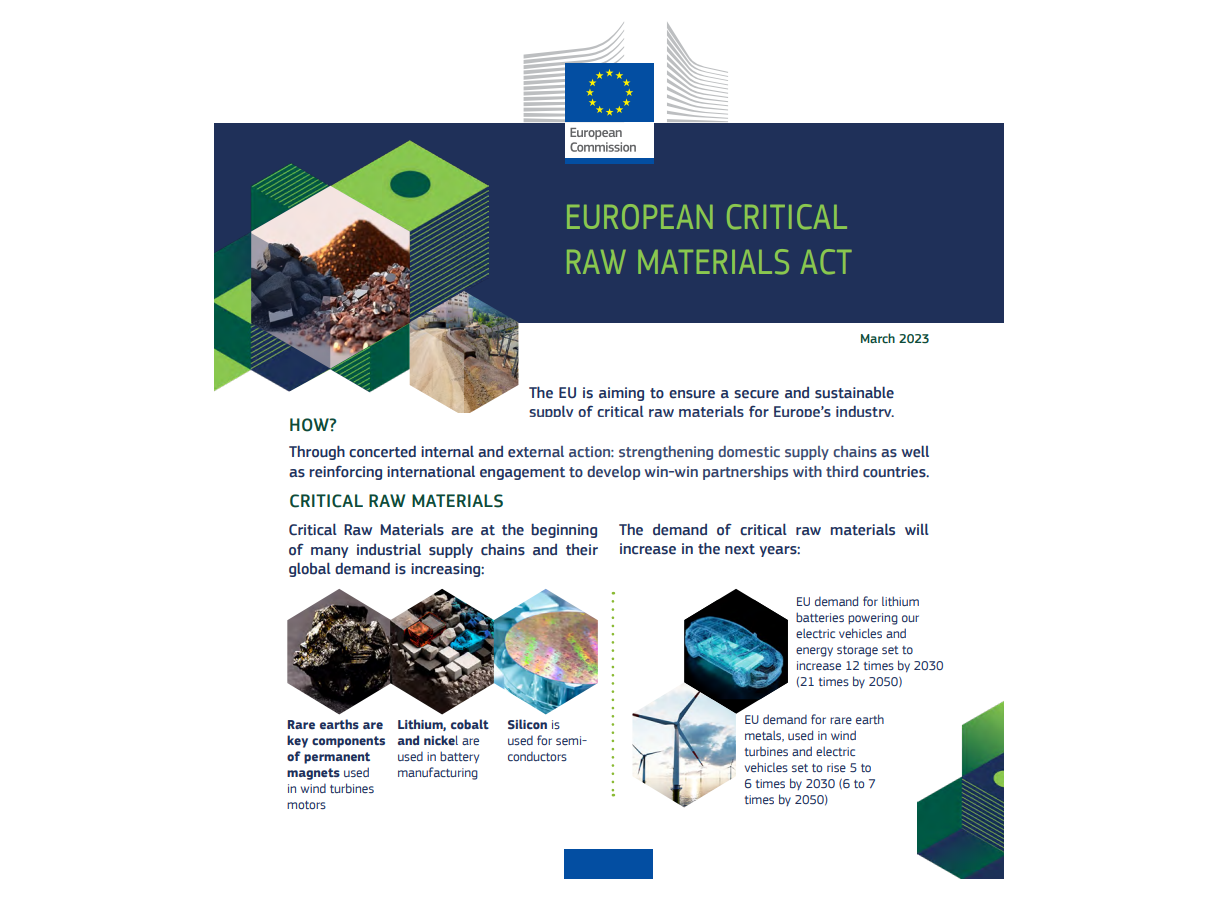European Commission Proposes Critical Raw Materials Act with Ambitious Recycling Targets for Green and Industrial Transition
The European Commission has recently released a proposal for the Critical Raw Materials (CRMs) Act, which has significant implications for the green and industrial transition in Europe. Released on Thursday, 16 March 2023, the latest regulation outlines targets for the production, refining, and recycling of essential raw materials required for the green and digital transitions.
Among other aspects, one of the key takeaways from the proposal is the establishment of a benchmark for recycling CRM materials. The Act proposes that “at least 15% of the annual EU consumption for recycling” should be achieved. This ambitious target highlights the importance of recycling as one of the key strategies to reduce the dependency on primary raw materials and to promote resource efficiency.
The Act also emphasises the need to recover CRMs from waste products and mining waste, as well as increasing the share of recycled CRMs in manufacturing. This aligns with the principles of circular economy, where resources are utilised in a closed loop, minimising waste and maximising resource recovery.
Furthermore, the proposal for the Critical Raw Materials Act comes at a time when concerns about the availability and sustainability of raw materials are increasing. The global demand for CRMs is growing, and many of these materials, such as the ones targeted for recovery within the PEACOC project, are found as primary sources in limited quantities and in geopolitically and environmentally challenged states. In this context, the Act presents a significant step towards securing the supply of CRMs through responsible resource management practices, such as recycling and recovery from waste products.
The PEACOC project is designed to support the EU’s sustainability goals through the valorisation of secondary waste resources and the development of up-cycling solutions for all by-products associated with the recovery of Precious Metals. Designed as a true technology transfer action to bring sustainable technological solutions developed in the PLATIRUS project from laboratory to an industrial context, PEACOC sets a blueprint that can unlock new business opportunities for industry, particularly for small and medium-sized enterprises (SMEs) involved in recycling end-of-life products (autocatalysts, e-waste, photovoltaic panels).

 This
project has received funding from the European Union’s
Horizon 2020 research and innovation programme under grant
agreement No 958302.
This
project has received funding from the European Union’s
Horizon 2020 research and innovation programme under grant
agreement No 958302.